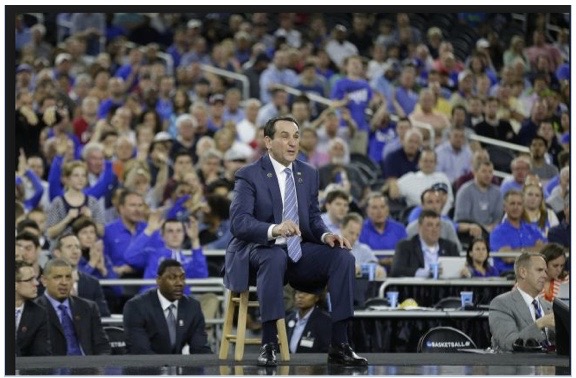
Is there a more dramatic explanation for why this season’s rule changes – while steps in the right direction – were insufficient to reverse the decline in pace and scoring in any significant way?
I don’t mean the embarrassed looking Hall of Famer and coaching extraordinaire Mike Krzyzewski during last season’s Final Four but the stool on which he’s perched and what it represents: the ascent of the coach from the bench to the court, the shift from coach as teacher to coach as participant.
In effect, today’s game is presented as strange theatrical production in which the director shares equal stature with the performers. He’s on the stage with them, shouting instructions and modifying the script as the play unfolds, and in the process, leaving little room for the actors to actually act. That’s what we have in college basketball today.
The coaches are smothering the game.
Continue reading…